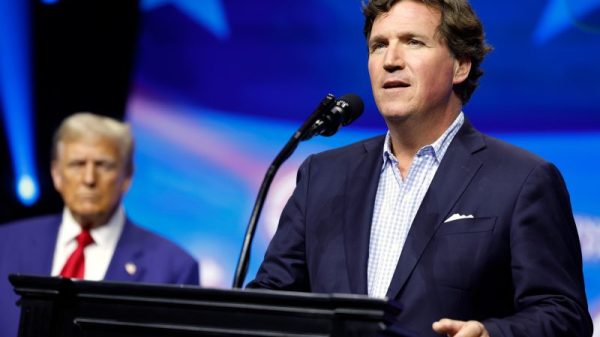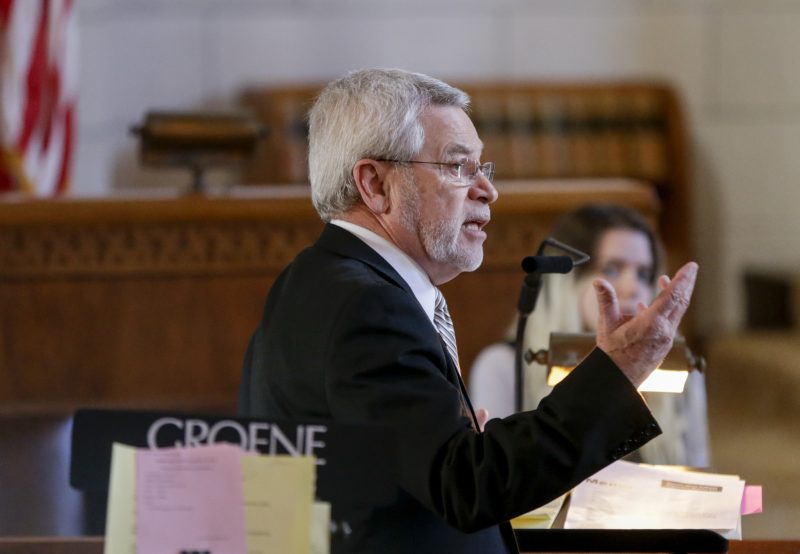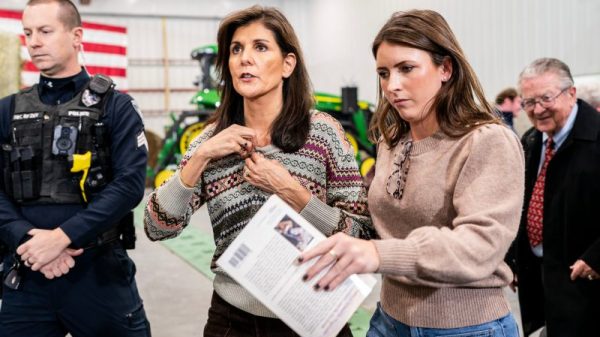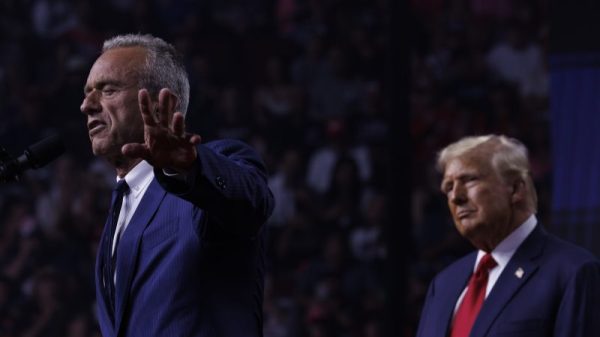During a debate over an obscenity bill in the Nebraska legislature, Sen. Steve Halloran (R) read out loud a graphic passage describing sexual violence and inserted a colleague’s name into the text, sparking calls for his resignation from across the political spectrum.
Before he started reading, he addressed “Senator Cavanaughs,” referring to Sens. Machaela (D) and John Cavanaugh (D), who are siblings, saying he would be reading from a book — Alice Sebold’s memoir “Lucky” — that a proponent of the bill had read from in an earlier hearing.
While reciting the passage, however, Halloran inserted the name “Senator Cavanaugh” into passages describing a woman being raped, at one point using the name directly after a character asks for a graphic sexual act. It wasn’t clear which Cavanaugh he was referring to.
Sen. Machaela Cavanaugh addressed the chamber through tears, describing the Monday evening incident as harassment and called it “unbecoming of [Halloran] and unbecoming of this body.”
“I have done nothing but try to have a respectful debate with Senator Albrecht about her bill that impacts my children,” Cavanaugh said, referring to state Sen. Joni Albrecht (R), who introduced the bill, which seeks to prevent teachers and librarians from sharing “obscene” material even for educational purposes. “That was so out of line and unnecessary and disgusting to say my name over and over again like that.” She added there are women in the legislature who have experienced sexual violence.
State Sens. Megan Hunt (I) and Julie Slama (R) publicly called for Halloran’s resignation on the social platform X. Hunt said it was “pure aggression to read a rape scene out loud and put it like that.”
Precious McKesson, head of the Nebraska Democratic Party, called the incident “unacceptable” on X, urging Halloran to “resign now.”
Halloran and Machaela and John Cavanaugh did not immediately respond to requests for comment.
At the time of the incident, lawmakers were discussing Legislative Bill 441, which would remove an exception to the state’s obscenity law for teachers and librarians in non-postsecondary educational settings who are sharing material for educational purposes. The bill describes “obscene” as work that appeals to the “prurient interest” or describes sexual conduct in an offensive way, and “lacks serious literary, artistic, political or scientific value.” Opponents of the bill say it threatens teachers and librarians so they don’t put certain books on their shelves.
The bill comes amid a surge in attempted restrictions on reading materials in schools and libraries across the United States. In 2023, there was a 65 percent increase in titles targeted for censorship from 2022, the American Library Association reported last week.
Alice Sebold’s “Lucky” was the 42nd most banned book in the United States during the 2021-22 school year, according to PEN America data reported by CBS News.
Albrecht apologized to Cavanaugh in the chamber. “I was mortified that you — whether your name was put in it, it was not right,” she said and went on to use it as an example of why such materials should not be allowed in schools. “I’m sorry that we even have to read anything like this,” she said.
Sebold’s “Lucky,” in which she tells the story of being raped during her freshman year of college, has faced controversy before. Anthony Broadwater, who was convicted of the rape in 1981, was exonerated in 2021 after spending 16 years in prison and years on the sex offender registry, prompting the book’s publisher to stop distributing it.
Writing in WBUR last year, Boston University associate professor Joshua Pederson says the book offers “a vital perspective both on the trauma of rape and on the still-unfolding sexual assault crisis on our campuses,” and remains important — perhaps even more so — after the controversy, which reflects flaws in the judicial system and challenges the urge for “clear-cut ideas about trauma and victimization.”
Sen. John Cavanaugh said that Halloran “missed the point” in the remarks he gave on the floor. “There are graphic scenes in books. There are graphic things that happen to people in life, and stories have context, and they give meaning to the people who read them, who feel alone,” Cavanaugh said.
“The whole point,” he added, “is that we cannot make a determination writ large about what has value and to whom it has value.”
Shortly after the incident, the legislature adjourned early.























